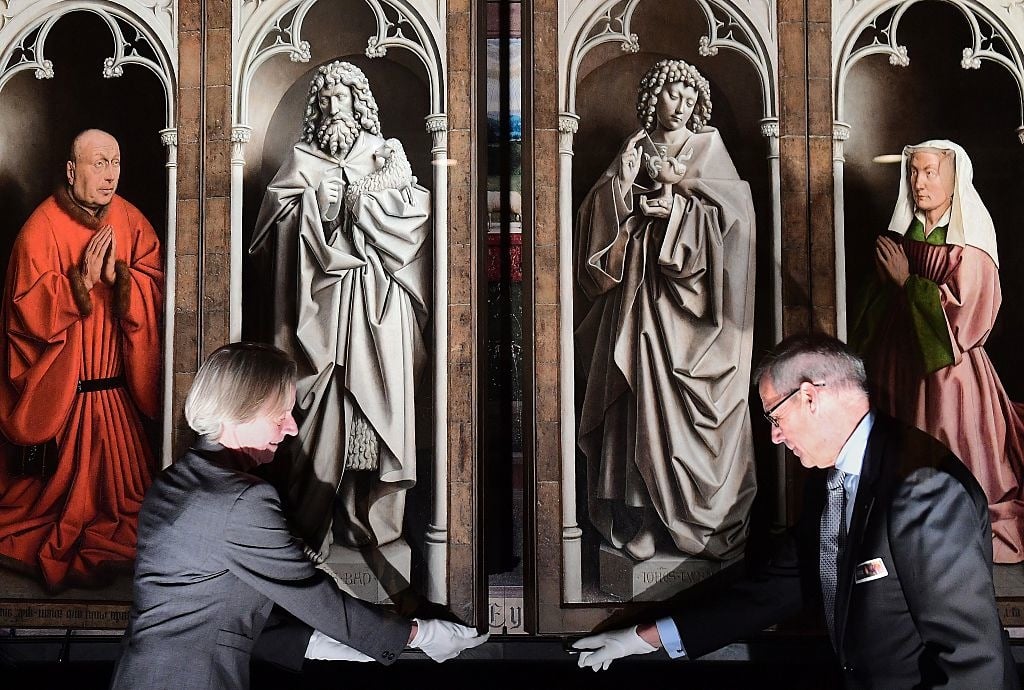
The museum of fine art, Ghent has announced that the first phase of restoration of The Adoration of the Mystic Lamb, better known as the Ghent Altarpiece, has been completed, revealing an unexpected amount of overpainting, and confirming the authenticity of a contested inscription. Completed in 1432 for the St. Bavo Cathedral in Ghent, Belgium, the altarpiece is a master work by Hubert and Jan van Eyck.
Researchers from the Brussels Royal Institute for Cultural Heritage (KIK-IRPA) originally set out to remove recent retouching and varnish, which had oxidized and caused discoloration. But in the process of restoring the outer wing panels and their frames—which depict the altarpiece’s patrons, as well as grisaille, statue-like representations of John the Baptist and John the Evangelist, and an interior Annunciation scene—they discovered that an estimated 70 percent of the surface was overpainted in the 16th or 17th century.
Removing this centuries-old overpainting reveals the original, light-filled splendor of the Van Eyck originals.
Officials unveil the restored exterior panels of “The Adoration of the Mystic Lamb.” Photo courtesy EMMANUEL DUNAND/AFP/Getty Images.
The altarpiece is attributed to the studio of Hubert van Eyck, who died in 1426, while the work was in progress. It’s unclear exactly what Hubert painted, and it wasn’t until an 18th century restoration project that an inscription was discovered on the frame of the altarpiece, confirming the attribution.
Since Hubert’s younger brother, Jan van Eyck, was more well-known, some were weary to believe the inscription. But this restoration reveals that it dates back to the same period as the rest of the painting.
A true masterpiece, the prized polyptych has been fought over for more than 100 years; complicated by two world wars and stored in Altaussee salt mines. But despite being stolen six times, the panels, almost miraculously, have always made their way back to Ghent. When restoration is complete, all remaining panels will continue to be displayed at the Joost Vijd Chapel of St. Bavo’s Cathedral.
The restoration project, begun in 2012, will continue until at least 2019. The progress will be shared online, as the KIK-IRPA photographs the work to update Closer to Van Eyck, a website that allows anyone to view high resolution, close-up images of the altarpiece.